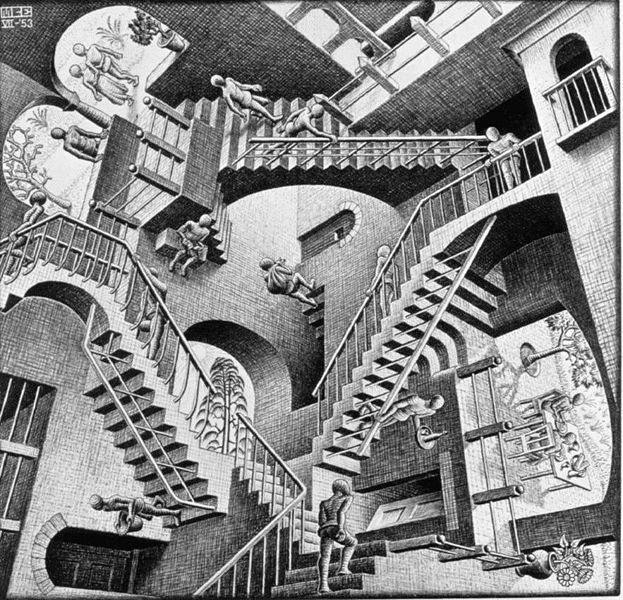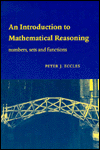 |
MAT 200 |
 |
MAT 200 |
The basic aim of MAT 200 is to introduce the student to mathematical reasoning and proofs. The course is intended as a bridge between the loose, heuristic approach often used to teach elementary calculus, and the precise, formal style needed for upper-division mathematics courses.
The course will begin with a discussion of logical language, operations, and rules, with an emphasis on their use in mathematical proofs. We will then focus on the key tools used in most modern mathematics: sets, and maps between them. Finally, we will hone our skills by using these basic tools to systematically examine certain aspects of classical Euclidean geometry, number theory, and elementary analysis.
 Textbook:
Textbook:
An Introduction to Mathematical Reasoning:
Numbers, Sets, and Functions,
by Peter J. Eccles,
Cambridge University Press, 1997.
It is rumored that the campus bookstore has already sold out, but that Stony Books and other local bookstores may still have copies in stock. In any case, you should be able to quickly obtain a copy from Amazon, Barnes & Noble, or some other on-line book-seller. Most such merchants offer overnight shipping for an additional charge.
The prerequisites for this course are:
Two essentially independent lecture-sections of the course are being taught this semester. Please click the appropriate hyper-link below for further information concerning your own section:
| Lecture 1: Prof. Alexander Kirillov MW 3:50-5:10 Physics P-117 |
Lecture 2: Prof. Claude LeBrun TTh 11:20-12:40 Library N-3063 |
Stony Brook University expects students to maintain standards of personal integrity that are in harmony with the educational goals of the institution; to observe national, state, and local laws as well as University regulations; and to respect the rights, privileges, and property of other people. Faculty must notify the Office of Judicial Affairs of any disruptive behavior that interferes with their ability to teach, compromises the safety of the learning environment, or inhibits students' ability to learn.
DSS advisory. If you have a physical, psychiatric, medical, or learning disability that may affect your ability to carry out the assigned course work, please contact the office of Disabled Student Services (DSS), Humanities Building, room 133, telephone 632-6748/TDD. DSS will review your concerns and determine what accommodations may be necessary and appropriate. All information regarding any disability will be treated as strictly confidential.
Students who might require special evacuation procedures in the event of an emergency are urged to discuss their needs with both the instructor and DSS. For important related information, click here.